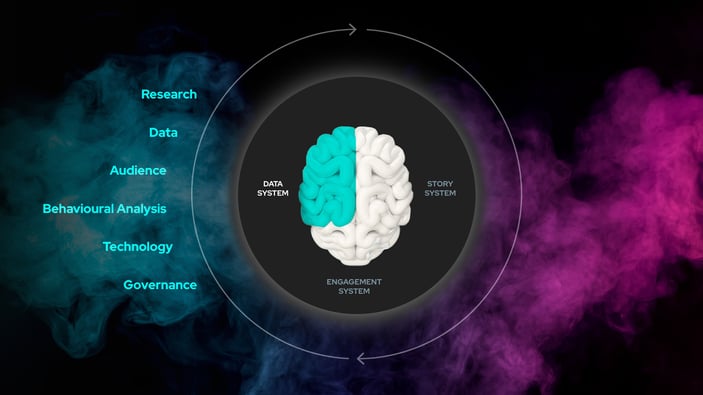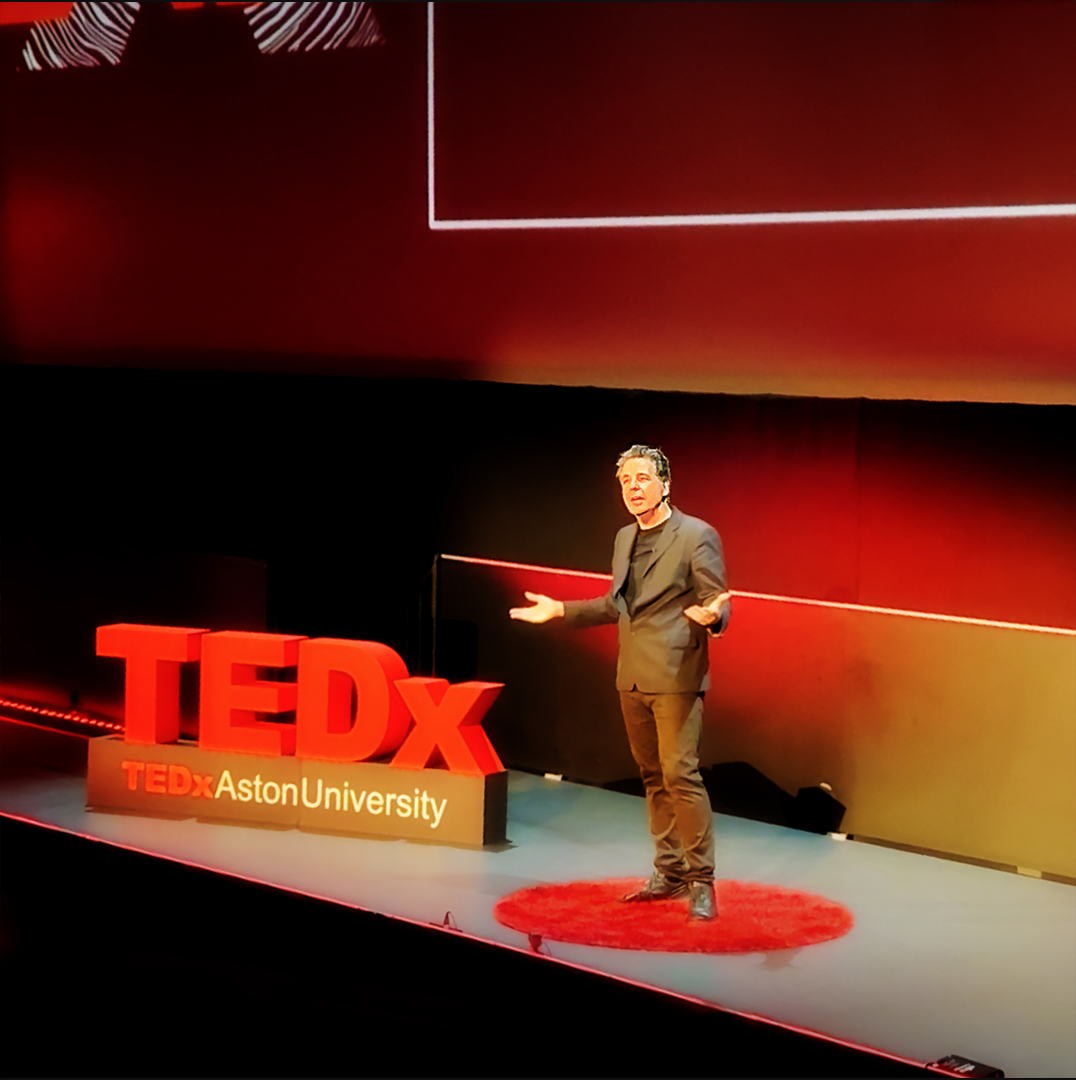Psychologist and Cognition Co-Founder, Dr Peter Hughes, explains how our proprietary methodology combines scientific and creative thinking to deliver outstanding marketing results.
Most marketing agencies have a model or series of steps they claim to follow with their clients. These models often have slick names and even slicker diagrams and always get dragged out for pitches.
But how many agencies actually run with these models? How many are just pretty visuals paying lip service to the latest marketing buzzwords? And more importantly, how many of these so-called ‘methodologies’ are based on robust thinking that stands up to both academic and commercial scrutiny?
The Cognition Brain is different.

As an agency, we have a unique set of capabilities thanks to our in-house Scientific Board. This panel of experts brings together psychologists, neuroscientists, behavioural scientists and data scientists. In short, the perfect people to develop a model and test its results.
But despite the cutting-edge science that goes into it, the Cognition Brain is surprisingly simple. It contains three core elements: Data, Stories and Engagement. These are the fundamental ingredients of successful marketing that apply across every conceivable channel, tactic or format. At Cognition, these systems become more than principles - they define the output of every project. And the very structure of our business.
It’s this combination of cognitive science and creative execution which makes the Cognition Brain so effective. Epitomising our values of speed and simplicity, it’s a flexible and replicable model which can be applied to any marketing challenge regardless of industry, sector or territory.
Below, Dr Peter Hughes discusses the inspiration behind the Cognition Brain and explains each of the three systems in turn.
Dr Peter Hughes: “Getting value out of marketing is a blend of science and creativity: powerful creative generates emotion, rigorous science turns that emotion into practical engagement with a brand.
The Cognition Brain was designed by a psychologist, neuroscientists and senior marketers at Cognition to optimise this process. It is composed of three distinct, interconnected systems:
The Data System
One of the core areas of expertise of the Scientific Board at Cognition is decision science. Psychologists Daniule Kahnemaa and Amos Tversjy became world-renowned for their work in this area when they identified the two principal ways in which human beings make decisions. Most of our decisions are made quickly using heavily biased and habit-driven mechanisms of which we are largely unconscious. Critical thinking (i.e. science) on the other hand demands that we evaluate our decisions rationally. This means we have to be slow, analytical and considered in our decision making. Unsurprisingly, we use this rational part of the brain sparingly because it’s costly in terms of time and cognitive investment.
The Cognition Brain builds on these observations and envelopes them further. The Data System is where all research and analysis are conducted. It’s the area of cognitive heavy-lifting and it's the foundation of any effective creative content:

The Story System
Once the research is done, it needs to be storified to optimise engagement from a target audience.
The Story System is the engine of creative execution. It’s where our designers, visual artists, illustrators and writers collaborate to create powerful, engaging content. This is the face of your brand and where the importance of the Data System is revealed because any story you tell is only as effective as the foundation on which it is built:

The Engagement System
Once the research has been storified, we engage your audience. This involves choosing the right tactics and channels and adhering to core principles of psychological influence.
In the Engagement System, Cognition’s marketers activate our storytellers' work and learn from our scientists' findings. Their approach to engagement is driven not only by the latest digital marketing tactics and best practices, but also by timeless psychological principles. Informed by Robert Cialdini’s pioneering work, our campaigns utilise reciprocation, consistency, social proof, familiarity and authority to influence audiences and maximise conversions.”

An iterative feedback loop
Finally, the Cognition Brain never stops learning. The three elements form a continuous feedback loop.
More data means better stories. Better stories deliver more engagement. More engagement generates more data. And all the while, we’re continuously optimising your marketing budgets and delivering ever-stronger results.

The leading marketing psychology model
The Cognition Brain’s blend of science and creativity, developed by world-leading psychologists and neuroscientists, is a powerful and effective way to create deep and lasting engagement with your audience.
Whether you are rebranding or defining the commercial strategy for your business, looking to optimise digital demand generation or wanting creative that will hasten the transition of leads from the top to the bottom of the funnel, the Cognition Brain is a rigorous, evidence-based mechanism for achieving those objectives.
In summary: data is only as useful as the story you tell and the best brand storytellers understand how the power of their creativity can be unlocked by scientists.”
Learn more about the Cognition Brain
Are you interested to learn more about the Cognition Brain? Perhaps you’re intrigued by the thinking and theory and want to see the commercial results?
Why not get in touch to arrange a meeting where we can talk you through some recent case studies and discuss how our methodology can be applied to your specific marketing challenges.




.png)
